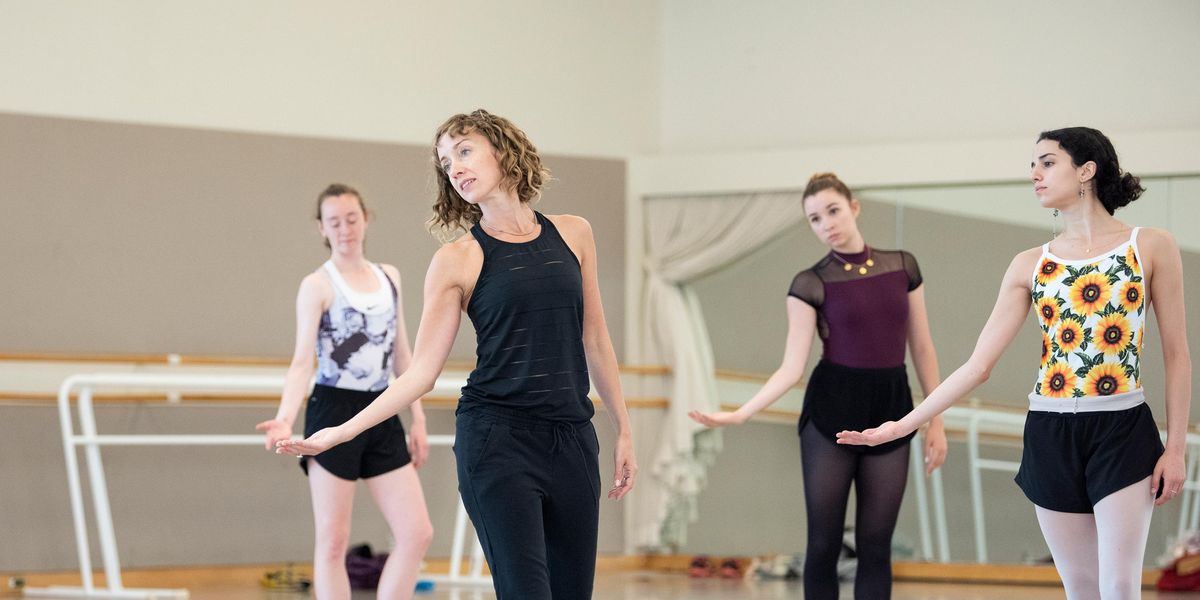Cathy Marston Talks Literary Adaptations, Dream Projects and Dance Criticism
Prolific director-choreographer Cathy Marston has made story ballets chic again. Last year began with Marston poised to make a big splash in the U.S., with plans for new creations at The Joffrey Ballet (Of Mice and Men) and San Francisco Ballet (Mrs. Robinson, based on The Graduate), following up remounts at American Ballet Theatre and The Joffrey of her Jane Eyre. With both premieres delayed by the pandemic—even SFB’s planned digital debut of Mrs. Robinson this month has been replaced by a webcast of her 2018 Snowblind—Marston continues to work remotely and even started a project-based company in partnership with choreographer Ihsan Rustem.
Where are you right now?
I’ve been at home in Bern, Switzerland, since March 2020. Which is just mad. I’ve never stayed put for so long.
I understand your parents were English teachers, which explains a lot. I know less about your pathway to dance.
I loved this police series on the telly called “Juliet Bravo.” I wanted to be like her, a female inspector. My mum told me she was really an actress, but I couldn’t find any drama classes, so Mum said, “Why don’t you do dance?”
Is it plot that sparks your imagination, or can descriptions and turns of phrase seed ideas too?
Probably the first things I’m looking at are character and plot. With Mrs. Robinson, it was the character of Mrs. Robinson, and then the plot worked in that it could all be told through dance. The other thing that draws me to stories has got more to do with language specifically. In the case of Ethan Frome, it was the snow itself and the way that environment lends an emotional atmosphere.

Rick Guest, Courtesy SFB
I understand Anthony Dowell encouraged your choreography. What have you learned from performers like Dowell, who bring such life to characters onstage?
At The Royal Ballet, they do have some fantastic dancer-actors. I was so proud, actually, creating The Cellist. There were four parts for what they call the “principal character artists,” and, now that we’re all getting a bit older, three of those parts went to colleagues and peers of mine from school. They could get every little gesture, every turn of the head, to come to life with the most subtle detail.
Working with [SFB principal] Sarah Van Patten is very similar, actually. In Mrs. Robinson, she would just reach to Benjamin [the titular graduate] and pick a tiny bit of lint off his shirt. It says everything. I love that.
That suggests it’s also about knowing when to stop choreographing, to leave room for spontaneity.
It’s also about how the process is. You have to give dancers space to know they can contribute in that way.
George Balanchine famously said, “There are no mothers-in-law in ballet.” I expect you might disagree.
No, he’s right. [Laughs.] There are limits.
Is there a “white whale” for you, a story you absolutely love but don’t quite know how to tell onstage?
There’s a piece I’d love to do but don’t know if it’s ever going to happen, and that’s Atonement, by Ian McEwan. He’s told me I can do it, I just need to find the company.
Dance and language also intersect in criticism.
The New York Times
published a strong response to Jane Eyre by Gia Kourlas. What strategies have you developed to support the press in its assessment of your work?
The New York Times
review is actually the only review I’ve knowingly not read. It was a huge thing, ABT premiering Jane Eyre at the Met. I had two very close friends there and they both told me, “Don’t read it.” I mean, I got the gist—it sounded awful. When you read reviews, a turn of phrase can linger and leave a bitter taste in the mouth, even if you disagree.
I’d love to make works that people love straightaway, of course, but I’d hate to make works that people love the first time, and the second time are really bored by. I want people to want to watch it again and see more in it. So, I guess with American critics—and maybe with Gia—it’s a getting-to-know-you phase, and we just need to have a chat at some point. [Laughs.] Or maybe not. You can never please everybody.






